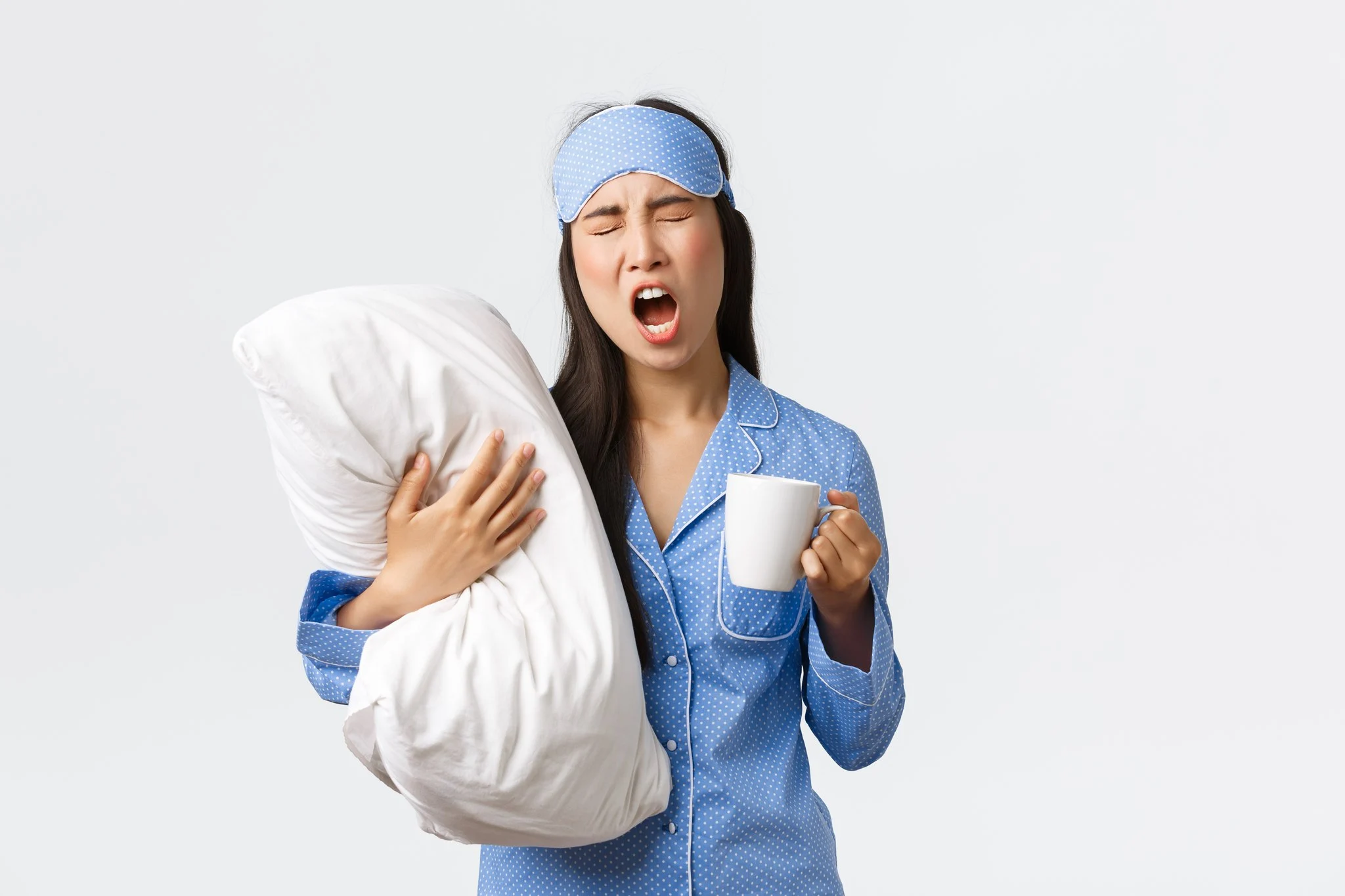A warm cup of herbal tea before bed is more than just a comforting ritual; it’s a proven strategy for promoting restful sleep. Many herbs used in these teas contain natural compounds that interact with the brain’s neurotransmitters to soothe the mind and prepare the body for sleep.
Here’s a look at ten herbal teas that can help you unwind and achieve deeper, more restorative sleep.
10 teas for better sleep:
1. Chamomile Tea
Chamomile is renowned for its calming properties, attributed to the flavonoid apigenin, which binds to benzodiazepine receptors in the brain. This interaction has a tranquilizing effect that helps reduce anxiety and initiate sleep, making chamomile one of the most popular sleep aids.
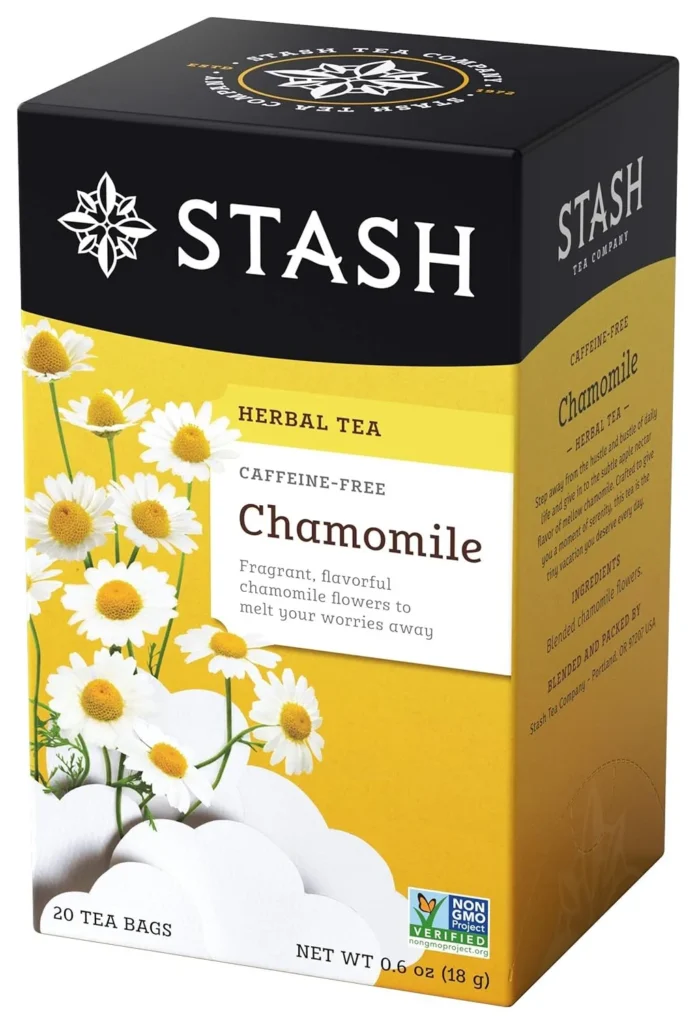
Stash Tea Soothing Chamomile Herbal Tea – Naturally Caffeine Free. View this product on Amazon.
2. Valerian Root Tea
Valerian root enhances the body’s production of gamma-aminobutyric acid (GABA), a neurotransmitter that helps calm nervous activity. This herb is a powerful sleep aid that helps treat insomnia and improve sleep quality.
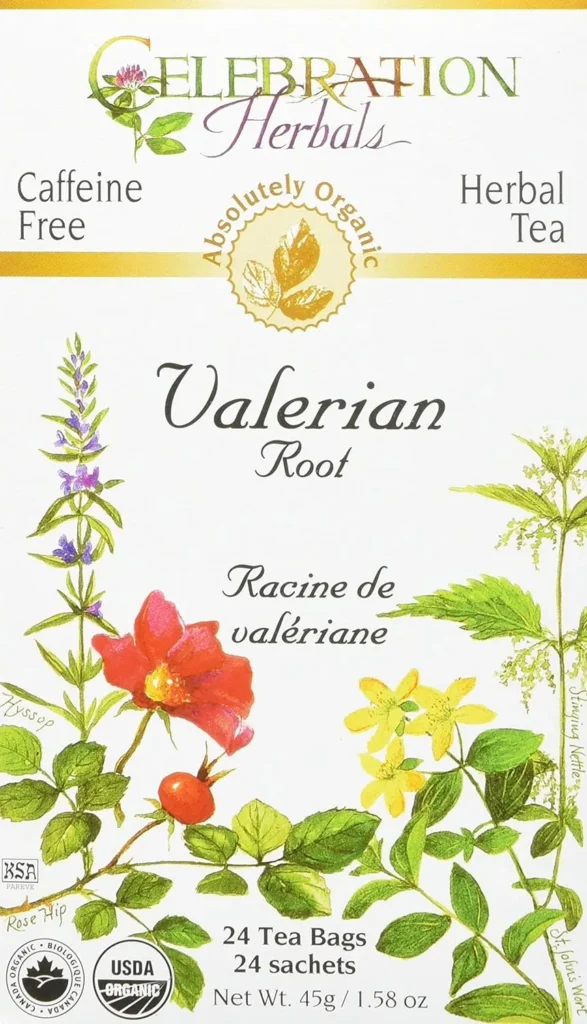
Celebration Herbals Valerian Root 24 Count. View this product on Amazon.
3. Lavender Tea
Lavender is widely used for its anxiety-reducing and sedative effects. Drinking lavender tea can help decrease heart rate and provide a peaceful state, making it easier to fall and stay asleep. The soothing aroma of lavender also enhances its relaxation benefits.
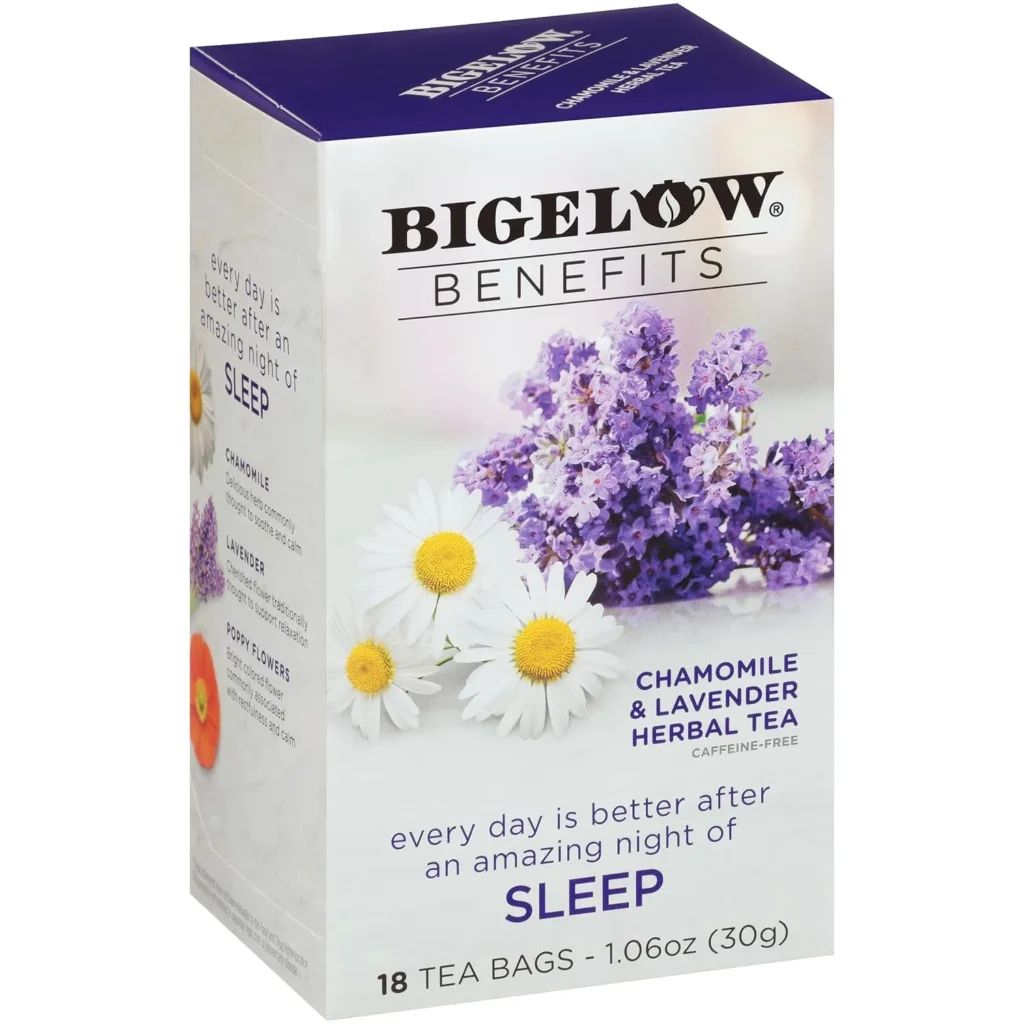
Bigelow Benefits Sleep Chamomile Lavender Herbal Tea, Caffeine Free. View this product on Amazon.
4. Magnolia Bark Tea
Magnolia bark contains compounds like honokiol and magnolol which have potent sedative properties. Studies suggest that magnolia can decrease the time it takes to fall asleep and increase the overall sleep time by interacting with GABA receptors.
5. Passionflower Tea
Passionflower is effective in improving sleep quality due to its ability to boost GABA levels in the brain. This increases relaxation and is particularly beneficial for people who have racing thoughts at night.
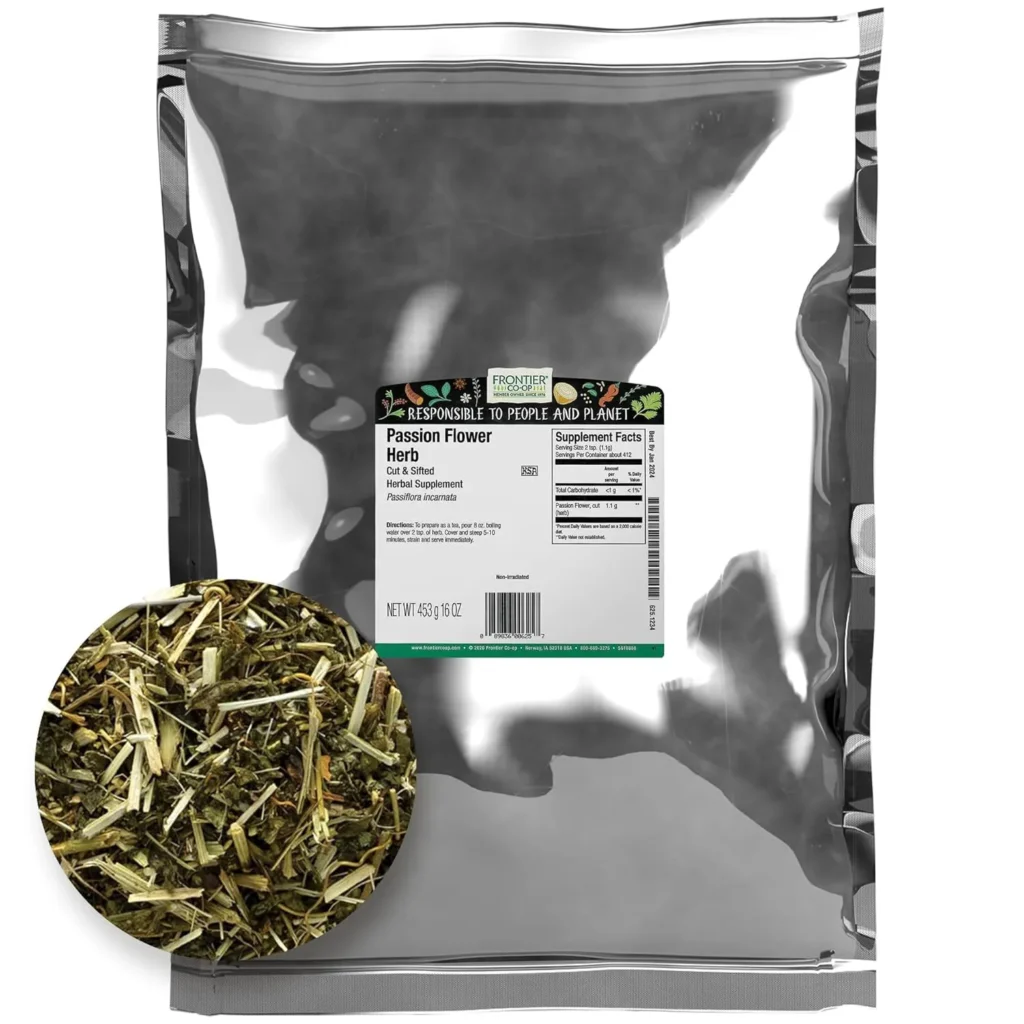
Passion Flower Herb, Cut & Sifted, Kosher, Non-irradiated. View this product on Amazon.
6. Lemon Balm Tea
Lemon balm, belonging to the mint family, has been used historically to treat anxiety and insomnia. It can also enhance the quality of sleep by acting as a mild sedative, making it a great choice for those who need a gentle nudge into dreamland.
Traditional Medicinals Tea, Organic Peppermint. View this product on Amazon7. Low-Caffeine Green Tea
Green tea naturally contains the amino acid L-theanine, which can help to prolong sleep and enhance its quality. Choosing a low-caffeine option ensures that you get the benefits of L-theanine without the wakefulness caused by caffeine.
8. Banana Tea
Banana tea, made from boiling banana peels or the entire fruit, is rich in potassium and magnesium, both of which are natural muscle relaxants. This tea can help alleviate physical tension and promote relaxation before bedtime.
9. Decaffeinated Black Tea
Like green tea, black tea contains L-theanine, which can reduce anxiety and significantly improve sleep. Opting for a decaffeinated version makes it suitable for nighttime consumption.
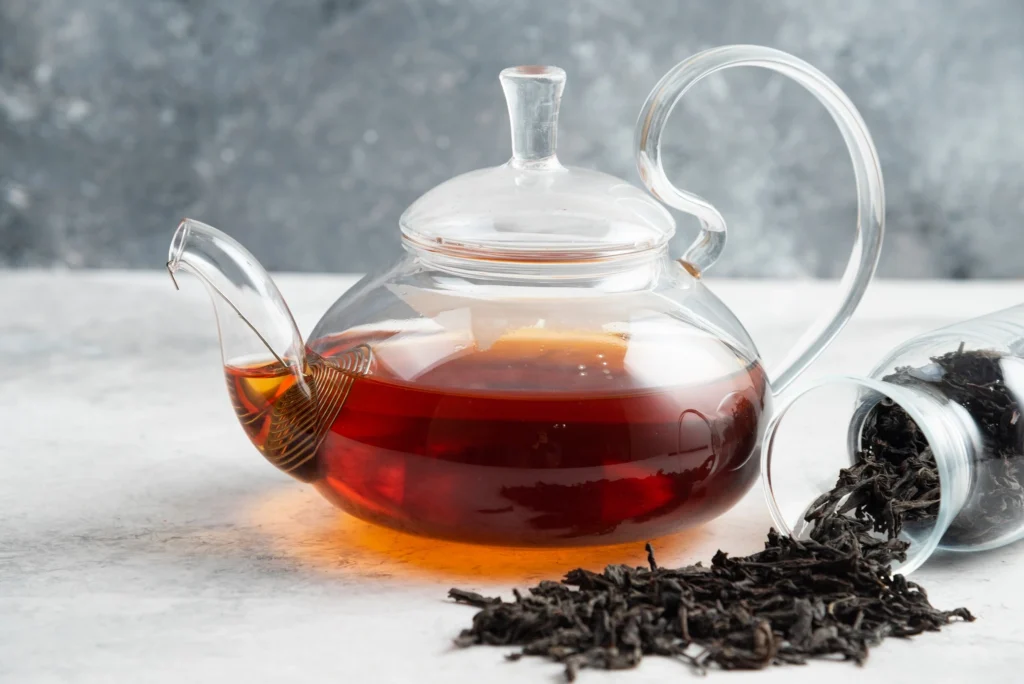
Source: Freepik
10. Peppermint Tea
While not traditionally known for its sleep-inducing properties, peppermint tea can be a great option for those whose sleep disturbances are related to digestive issues. Peppermint can help soothe the stomach and relax the muscles, facilitating a more comfortable sleep.
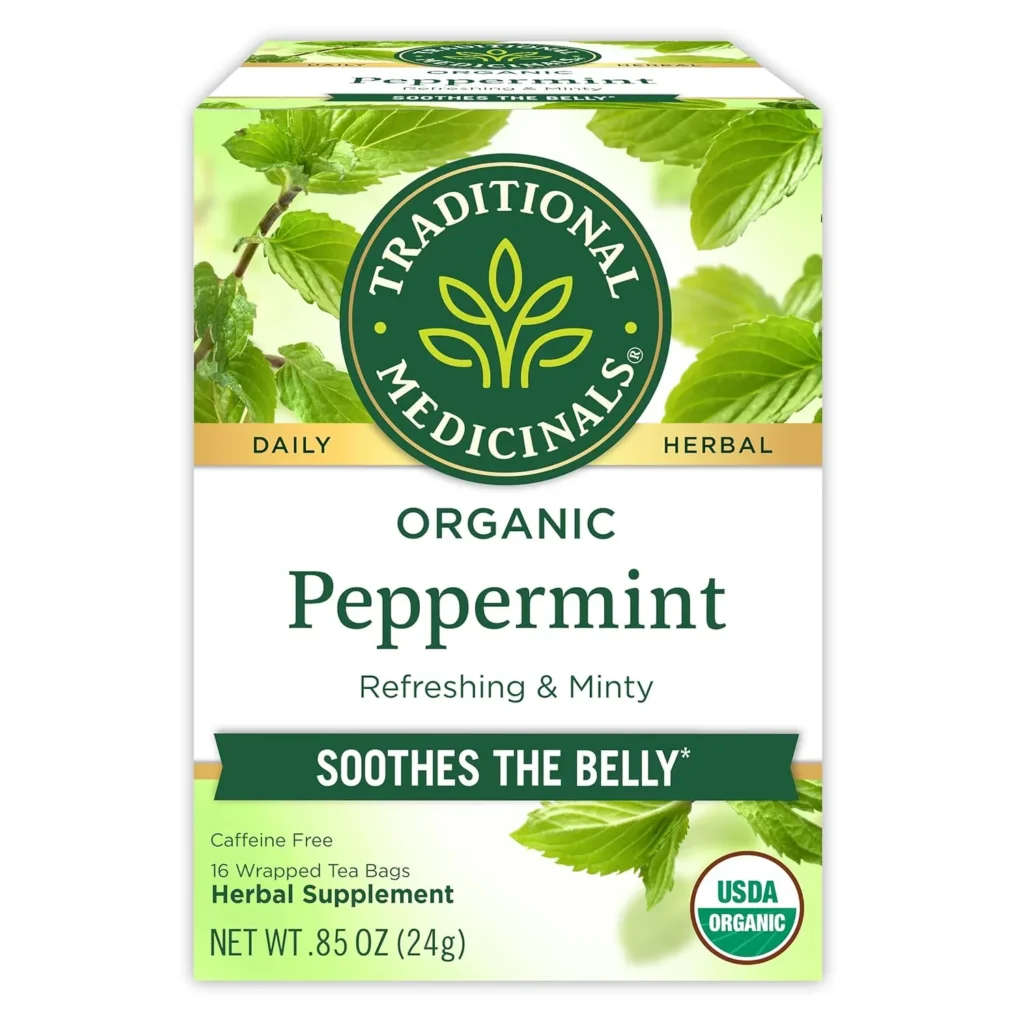
Traditional Medicinals Tea, Organic Peppermint. View this product on Amazon
Why teas are effective for sleep
The effectiveness of these teas largely stems from their interaction with neurotransmitters like GABA, which are crucial for regulating sleep. Herbs that enhance GABA activity help quiet the mind and reduce anxiety, paving the way for a good night’s sleep. Additionally, many of these teas contain antioxidants and anti-inflammatory compounds that provide overall health benefits, including improved sleep quality.
Is it okay to drink sleepytime tea every night?
Incorporating herbal teas into your bedtime routine can significantly improve your sleep quality. Each of the teas listed offers unique benefits, so you might need to try a few to find which works best for you. As always, consider any personal health conditions or allergies, and consult with a healthcare provider if sleep problems persist.
And yes, it’s generally okay to drink sleepytime tea every night. These herbal teas are made from natural ingredients like chamomile, lavender, and valerian root, which are known for their calming and sedative properties. Drinking them as part of your nightly routine can help signal to your body that it’s time to wind down and prepare for sleep.
However, it’s important to monitor how your body responds. While these teas are safe for most people, if you experience any adverse effects or if you have specific health conditions or are taking medications that might interact with the herbal components,
it’s wise to consult with a healthcare provider. Additionally, maintaining a variety of teas can help ensure you receive a broad spectrum of benefits and flavors, keeping your bedtime routine both effective and enjoyable.
By understanding and leveraging the natural properties of these teas, you can enhance your nighttime routine and enjoy a more restful, restorative sleep.
With so many options available, which is the right tea to drink for better sleep?
Choosing the right tea for better sleep depends largely on your specific needs and taste preferences. If you’re looking for a tea that helps with general relaxation, chamomile tea is a popular choice known for its mild sedative effects.
For those who need a stronger option to combat insomnia, valerian root tea is highly effective due to its ability to increase levels of the calming neurotransmitter GABA.
Lavender tea is excellent for reducing anxiety and inducing relaxation, while passionflower tea can be beneficial for those with racing thoughts at night. If you prefer a less herbal taste, decaffeinated green tea or banana tea, rich in relaxing magnesium, might be perfect.
Each of these teas offers unique benefits, so you might consider trying a few to see which works best for you.
Sources:
